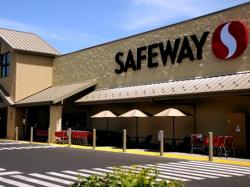Safeway Shows The Value Of Free Trade
July 12, 2010 | 1 min to read

Not long ago Safeway re-opened what Washington residents have long referred to as the "Social Safeway." Conveniently located, well stocked with everything a grocery shopper could want, and staffed with helpful employees, the grand re-opening cheered Safeway's loyal customer base, plus it exposed a few long-held economic misnomers in the bargain.
For starters, over the past year the trade deficits that myriad Washington, D.C., residents have traditionally run with Safeway ( SWY – news – people ) plummeted. To conventional economists oblivious to the basic truth that we produce in order to consume, this has been a good thing.
But for the average resident of the District, the falling trade deficit with Safeway's flagship location has been a major inconvenience. Thanks to a year-long remodel, residents had to either increase their trade deficits with ExxonMobil ( XOM – news – people ) and BP ( BP – news – people ) in order to drive to more distant grocery stores, or, in my case, shifted their trade deficit from the relatively healthy fare available at Safeway to McDonald's ( MCD – news – people ), Popeye's and Burger King ( BKC – news – people ).
To read the rest of the story, please go to: Forbes.
